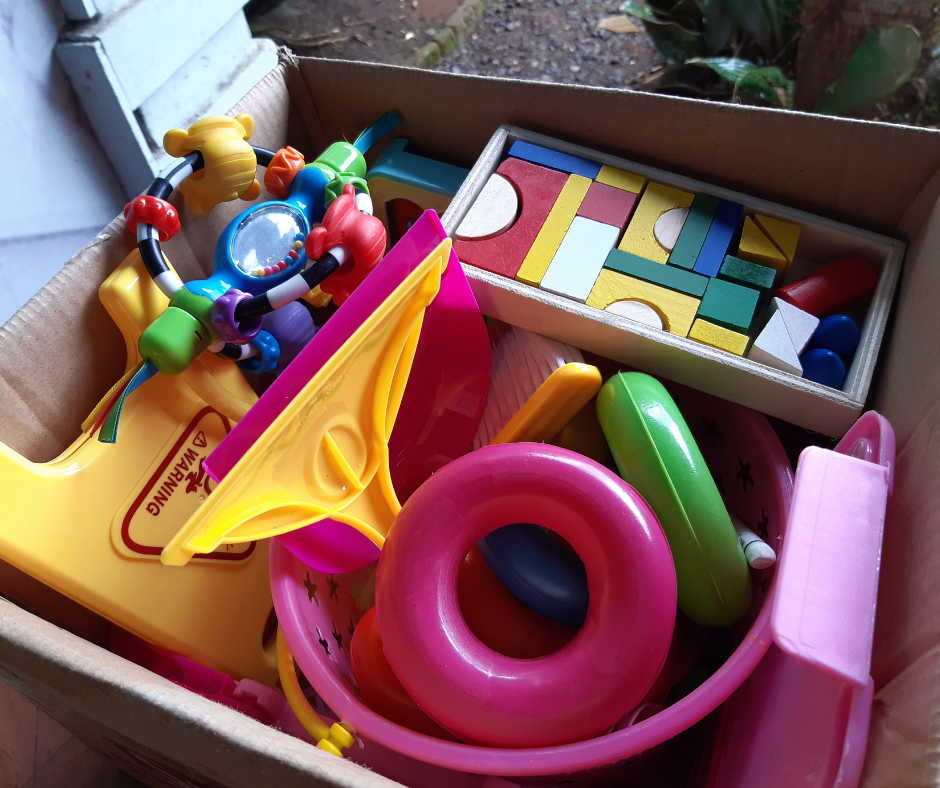When you have a child, no one teaches you how to parent, you might be lucky and have family and friends with children or you may have read books on parenting tips, but it can still be a minefield of trial and error! One of the great things if you employ a nanny is that they have years of practice and are experts in childcare. They have tried and tested methods to help establish positive behaviour, excellent manners, and good routines.
When you have a child, no one teaches you how to parent, you might be lucky and have family and friends with children or you may have read books on parenting tips, but it can still be a minefield of trial and error! One of the great things if you employ a nanny is that they have years of practice and are experts in childcare. They have tried and tested methods to help establish positive behaviour, excellent manners, and good routines.
We asked some of our nannies what their top tips were to help parents from those early years:
It’s okay to let your baby cry.
If you are a first-time parent you can feel anxious and unsure when your baby cries. Particularly in the early days when you aren’t sure why they are crying, and you are tired and feeling out of your depth. But a crying baby is normal, they are also feeling anxious and unsure, and a lot of the time just want to be held close and feel safe. Nannies recommend you trust your instinct, if you feel they need feeding, changing, cuddling, or rocking to sleep go with it, you will soon learn, it just takes a little while.
You Don’t Need to Buy All of the Baby Products
You’ve just found out you are expecting, you are excited and the first thing you want to do is rush out and buy every baby product you can from Activity mats to Cuddly Zebras! All and hug expense and often just left to be forgotten in a cupboard somewhere. Stick to the basics, if you have friends or family who have had children see what they might be getting rid of and ask them what their must have item was and what was a waste of money. In the first few months your baby really will sleep and feed, so they don’t need much!
What happens when it comes to weaning?
When your baby is ready to wean you need to give them a varied, healthy diet. Just because they don’t like bananas on the first try doesn’t mean they won’t like it on the second or third try. As their taste buds develop and change they will almost certainly learn to love foods they initially rejected.
When you have been out at work all day and you and your child are tired, mealtimes can become a bit of a battle ground and are often rushed to get bath and bedtimes out of the way. However, this doesn’t give a healthy message around food and it’s important that children learn to sit the table and enjoy their meal and allow them time to relax and digest it before they must get on with the next activity. Think about when you most enjoy food, it almost certainly is when you are relaxed and able to really think about what you are eating and not when you are rushing about and eating on the go.
Routines
Routines don’t need to be regimented and should have some flexibility in them. Children need some guidance and structure to their day as it provides security and a good foundation for them to build on, but it doesn’t need to be so strict that there isn’t room for fun, or changes to help an exhausted parent or child feel life is a drag!
Talk and Listen to each other
This applies to parents as well as children. As we have said before, life can be busy and them seems little time to sit and chat or really listen to what the other person is saying. How often are you multi-tasking as your child tells you about their day or an issue they are having? You might miss something important that they are saying. Find time to sit down and really talk to them and if you find yourself have a shouting match with your child or partner, stop, take time out and then return to the conversation when you are both calm and can have a constructive conversation.
Don’t jump through hoops to make you child happy.
Parental Guilt is rife, many parents work long hours to pay the bills and keep a roof over their family’s head and they feel guilty because they can’t always be there for their children so they shower them with gifts and agree to things (like getting a dog!) when it’s not really what they can afford or cope with. It’s important for children to learn early on that No means No and that throwing a tantrum and being rude will not get them any further. Establishing the difference between a child’s needs and a child’s wants is hugely important and will help teach your child the difference top. Also picking up after your child because it’s easier and quicker and saves an argument does not help them develop and grow. They need to learn to be independent and do things for themselves as they reach the appropriate stages/.
Parenting is tough, whether you are a staying at home parent or go out to work, it comes with its challenges. No two families are the same and what is important to one may be less important to another. Following your instincts, doing what works for your family and your household is the most important thing and trusting your ability as a parent and if all else fails ask the Nanny!











